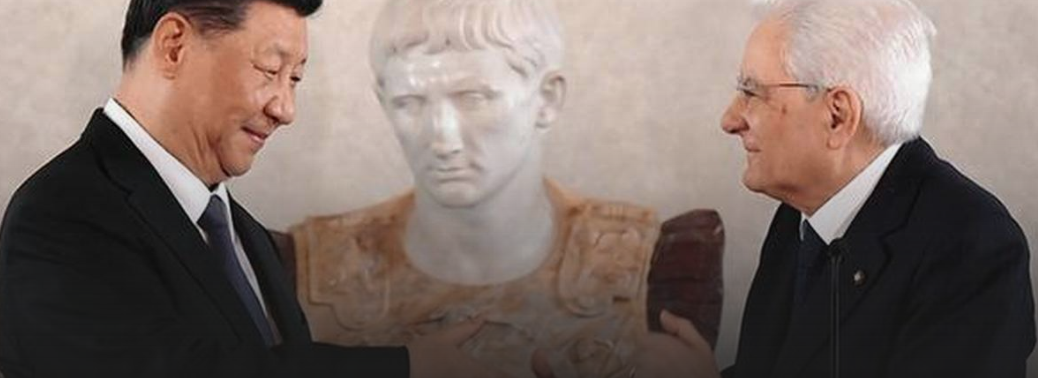Italy set to become first G 7 country to join Belt and Road
23, Mar 2019

Prelims level : International Event
Mains level : GS - II
- Italy and China want to revive the spirit of the ancient Silk Road by deepening their trade and investment ties.
- Italy become the first member of the Group of Seven (G7) major industrialised nations to join China’s “Belt and Road” infrastructure project (BRI), which is inspired by historic, centuries-old.
G 7 Nations:
- The Group of 7 (G7) is a group consisting of Canada, France, Germany, Italy, Japan, the United Kingdom, and the United States.
- The European Union is also represented within the G7.
- These countries are the seven major advanced economies as reported by the International Monetary Fund.
- G7 countries represent more than 64% of the net global wealth
- Common denominator among members is the economy and long-term political motives
Belt and Road Initiative
- The Belt and Road Initiative is a Chinese foreign policy initiative promoted by president Xi Jinping in 2013
- Initially the idea of Silk Road Economic Belt (SREB) and Maritime Silk Road (MSR) was put forward
- Subsequently, the two projects together came to be known as ‘One Belt One Road’ (OBOR) Initiative. Later, it came to be known as Belt and Road Initiative (BRI)
- Aim of BRI: Build a trade, investment, and infrastructure network connecting Asia with Europe and Africa along the ancient trade routes
- The Communist Party of China (CPC) has incorporated Belt and Road Initiative into the Chinese Constitution
India and BRI
- India has opposed the BRI and did not attend the 2017 BRI Summit held in Beijing. It cited issues of sovereignty, transparency and unilateral decision making.
Major reasons for India’s reluctance towards BRI are as follows:
China-Pakistan Economic Corridor (CPEC):
- The main reason for India’s opposition to the BRI is the CPEC which is a flagship programme of the BRI
- The CPEC passes through Pakistan-Occupied Kashmir (Gilgit-Baltistan). As both India and Pakistan claim all of Kashmir,
- the area is considered a disputed territory by India. According to India, it undermines India’s strategic interests and territorial integrity.
- Further, China will get access to western Indian Ocean with Gwadar port. This would facilitate China in controlling maritime trade and this could be detrimental to freedom of navigation and trade-energy security of India
Unilateral Decision:
- India has alleged that China has taken unilateral decisions. There has been lack of consultations with India before the launch of BRI.
Transparency issues:
India has highlighted the importance of openness and transparency
According to India, mutual agreements on infrastructure projects should be transparent and debt repayments be made easier for recipient countries
Concern over China’s expanding presence in neighbouring countries and Indian Ocean:
China’s port development projects in the Indian Ocean raises security concerns for India.
Increasing Chinese presence in Nepal, Pakistan, Sri Lanka, and Myanmar has raised concerns for India. For India, BRI seems driven by large geopolitical aims.
Advantages for India if joined BRI
- Direct access to Afghanistan and Central Asia
- Economic benefits; Boost to trade, investment and business engagement
- Security: Development in Gilgit- Baltistan area would help to curb security threats
- Energy: BRI is expected to normalize India-Pakistan ties. This would remove the
- obstacles in implementation of two major energy cooperation projects: the Iran-Pakistan-India gas pipeline and the Turkmenistan-Afghanistan-Pakistan-India (TAPI) gas pipeline. This is crucial for India’s energy security.
- Improve Indo-China ties; India and China may cooperate at many global fronts
- All neighbouring countries (except Bhutan) and other countries from SE Asia, Central Asia has joined BRI. Thus, not joining BRI may lead to isolation of India
- Many geopolitical issues and differences can be resolved through economic integration






